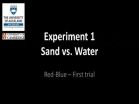(Press-News.org) On bmj.com today, Angela Coulter, Associate Professor at Oxford University and colleagues argue that this is "unethical" and call for a coordinated approach to use the information to help improve services.
Their views follow recent news of hospital trusts "helping" patients to write favourable reports of their experience of their services – and a report by Healthwatch England warning that the complaints system for the NHS in England is "hopelessly complicated" and needs an overhaul.
By April 2015, all NHS patients attending any type of healthcare facility in England will be invited to report back on their experiences. However, less effort has gone into how to understand and use the data, and there is little evidence that the information has led to improvements in the quality of healthcare, argue Angela Coulter at the University of Oxford and colleagues.
They describe the abundance of data collected over more than 10 years through surveys, in-depth interviews, focus groups and Trip Advisor-style websites, but argue that "clinicians often ignore survey evidence" and that "only a minority of hospital providers have been galvanized into taking effective action."
"It seems that measurement is necessary but that change will not happen without effective leadership improvements," they write.
They point out that patients who report good healthcare experiences tend to respond better to treatment and believe that a more coordinated approach is needed "if we are to make better use of people's reports on their experiences."
They suggest a national institute of patient (or service user) experience should be set up "to draw the data together, determine how to interpret the results, and put them into practice."
They conclude: "Careful observation, measurement, recording, interpretation, and analysis of patients' subjective experiences is essential to appreciate what is working well in healthcare, what needs to change, and how to go about making improvements.
We believe a more concerted attempt is now required to make use of the evidence. An institutional focus could prove to be the key to getting it taken more seriously."
INFORMATION: END
NHS data on patient experience is often ignored
Action needed to use this information to improve services, argue researchers
2014-03-27
ELSE PRESS RELEASES FROM THIS DATE:
Stag beetle males give nasty nips despite massive jaws
2014-03-27
Armed with a ferocious pair of mandibles, male stag beetles appear well prepared to take on the world. 'Their jaws are not just for ornamentation, they really use them to fight', says Jana Goyens from the University of Antwerp, Belgium, adding that males grapple over the choicest patches of rotten wood for their mates to lay their eggs in. Describing a stag beetle battle, Goyens explains that one beetle grabs the other one around its body and then rears up in an attempt to hurl his opponent over his head and onto its back. 'It is clear which one is the loser', says Goyens. ...
Reproducible research, dynamic documents, and push-button publishing
2014-03-27
March 26, 2014, Hong Kong, China –The international open-access journal GigaScience (a BGI and BioMed Central journal) today announces a major step forward for reproducible research and public data-sharing in the neurosciences with the publication and release of a huge cache of electrophysiology data resources. Important for studying visual development, many groups have been using multielectrode array recordings to look at developmental changes and the effects of various genetic defects on the spontaneous activity of the retina. In neuroscience, public sharing of data is ...
Economic growth has little impact on reducing undernutrition in children
2014-03-27
A large study of child growth patterns in 36 developing countries published in The Lancet Global Health journal has found that, contrary to widely held beliefs, economic growth is at best associated with very small, and in some cases no declines in levels of stunting, underweight, and wasting. This suggests that investment in interventions that directly impact health and nutrition are needed to tackle child undernutrition.
Worldwide, malnutrition contributes to 2.6 million child deaths each year, or more than one in three of all child deaths. In 2011, an estimated 165 ...
Economic growth no cure for child undernutrition
2014-03-27
Boston, MA —A large study of child growth patterns in 36 developing countries finds that, contrary to widely held beliefs, economic growth has little to no effect on the nutritional status of the world's poorest children. The study, from researchers at Harvard School of Public Health (HSPH), the University of Göttingen, Germany, ETH Zürich, Switzerland, and the Indian Institute of Technology Gandhinagar, found that economic growth was associated with small or no declines in stunting, underweight, and wasting—all signs of undernutrition.
"These findings represent a potentially ...
Canal between ears helps alligators pinpoint sound
2014-03-27
By reptile standards, alligators are positively chatty. They are the most vocal of the non-avian reptiles and are known to be able to pinpoint the source of sounds with accuracy. But it wasn't clear exactly how they did it because they lack external auditory structures.
In a new study, an international team of biologists shows that the alligator's ear is strongly directional because of large, air-filled channels connecting the two middle ears. This configuration is similar in birds, which have an interaural canal that increases directionality.
"Mammals usually have ...
Cuvier's beaked whales set new breath-hold diving records
2014-03-26
Scientists monitored Cuvier's beaked whales' record-breaking dives to depths of nearly two miles below the ocean surface and some dives lasted for over two hours, according to results published March 26, 2014, in the open access journal PLOS ONE by Gregory Schorr from Cascadia Research Collective and colleagues.
Distributed throughout the world's oceans, the Cuvier's beaked whales' frequent dives deep into the ocean make them difficult for researchers to study. Previous studies using short-term tags (~ 215 hours of data) have indicated that this deep-diving species might ...
Crows complete basic 'Aesop's fable' task
2014-03-26
VIDEO:
This video shows example trials for each of the six experiments.
Click here for more information.
New Caledonian crows may understand how to displace water to receive a reward, with the causal understanding level of a 5-7 year-old child, according to results published March 26, 2014, in the open access journal PLOS ONE by Sarah Jelbert from University of Auckland and colleagues.
Understanding causal relationships between actions is a key feature of human cognition. However, ...
Humpback whale populations share core skin bacterial community
2014-03-26
Humpback whales share a simplistic skin bacterial community across populations, according to results published March 26, 2014, in the open access journal PLOS ONE by Amy Apprill from the Woods Hole Oceanographic Institution and colleagues. The overall bacterial communities differ by geographic area and by metabolic state, such as feeding versus starving during migration and breeding.
Bacterial communities living on mammal skin may play a role in their health; for humans, there is a relationship between skin bacteria and allergic or inflammatory conditions. While skin ...
New drug successfully treats crizotinib-resistant, ALK-positive lung cancer
2014-03-26
Although the targeted cancer treatment drug crizotinib is very effective in causing rapid regression of a particular form of lung cancer, patients' tumors inevitably become resistant to the drug. Now a new drug called ceritinib appears to be effective against advanced ALK-positive non-small cell lung cancer (NSCLC), both in tumors that have become resistant to crizotinib and in those never treated with the older drug. The results of a phase 1 clinical trial conducted at centers in 11 countries are reported in the March 27 New England Journal of Medicine.
"Crizotinib ...
Patches of cortical layers disrupted during early brain development in autism
2014-03-26
Researchers at the University of California, San Diego School of Medicine and the Allen Institute for Brain Science have published a study that gives clear and direct new evidence that autism begins during pregnancy.
The study will be published in the March 27 online edition of the New England Journal of Medicine.
The researchers – Eric Courchesne, PhD, professor of neurosciences and director of the Autism Center of Excellence at UC San Diego, Ed S. Lein, PhD, of the Allen Institute for Brain Science in Seattle, and first author Rich Stoner, PhD, of the UC San Diego ...
LAST 30 PRESS RELEASES:
Wildfire smoke linked to rise in violent assaults, new 11-year study finds
New technology could use sunlight to break down ‘forever chemicals’
Green hydrogen without forever chemicals and iridium
Billion-DKK grant for research in green transformation of the built environment
For solar power to truly provide affordable energy access, we need to deploy it better
Middle-aged men are most vulnerable to faster aging due to ‘forever chemicals’
Starving cancer: Nutrient deprivation effects on synovial sarcoma
Speaking from the heart: Study identifies key concerns of parenting with an early-onset cardiovascular condition
From the Late Bronze Age to today - Old Irish Goat carries 3,000 years of Irish history
Emerging class of antibiotics to tackle global tuberculosis crisis
Researchers create distortion-resistant energy materials to improve lithium-ion batteries
Scientists create the most detailed molecular map to date of the developing Down syndrome brain
Nutrient uptake gets to the root of roots
Aspirin not a quick fix for preventing bowel cancer
HPV vaccination provides “sustained protection” against cervical cancer
Many post-authorization studies fail to comply with public disclosure rules
GLP-1 drugs combined with healthy lifestyle habits linked with reduced cardiovascular risk among diabetes patients
Solved: New analysis of Apollo Moon samples finally settles debate about lunar magnetic field
University of Birmingham to host national computing center
Play nicely: Children who are not friends connect better through play when given a goal
Surviving the extreme temperatures of the climate crisis calls for a revolution in home and building design
The wild can be ‘death trap’ for rescued animals
New research: Nighttime road traffic noise stresses the heart and blood vessels
Meningococcal B vaccination does not reduce gonorrhoea, trial results show
AAO-HNSF awarded grant to advance age-friendly care in otolaryngology through national initiative
Eight years running: Newsweek names Mayo Clinic ‘World’s Best Hospital’
Coffee waste turned into clean air solution: researchers develop sustainable catalyst to remove toxic hydrogen sulfide
Scientists uncover how engineered biochar and microbes work together to boost plant-based cleanup of cadmium-polluted soils
Engineered biochar could unlock more effective and scalable solutions for soil and water pollution
Differing immune responses in infants may explain increased severity of RSV over SARS-CoV-2
[Press-News.org] NHS data on patient experience is often ignoredAction needed to use this information to improve services, argue researchers


